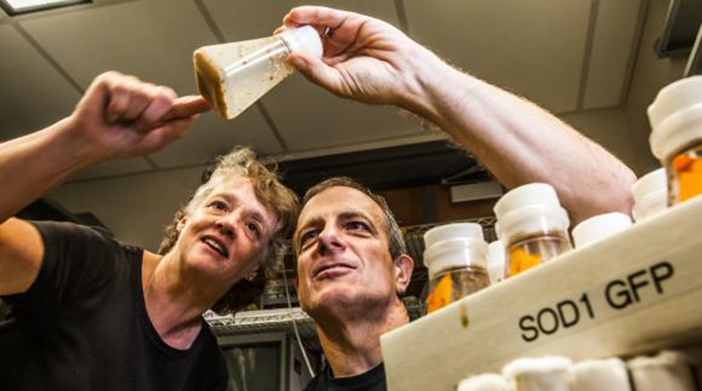New biomedical innovation fund makes two grants to accelerate the commercialization of technologies.
Often what’s needed to turn biomedical advances in the lab into innovations that reach patients through the marketplace is a proof-of-concept stage of funding that allows researchers to explore, develop and demonstrate the value of their ideas for potential investors and industry partners. To guide more of Brown’s research toward commercialization, the University has launched a new program, the Brown Biomedical Innovation Fund, and announced the first two grants.
Launched and implemented in partnership with Brown’s Technology Ventures Office, the fund is the first program of Brown Biomedical Innovations Inc., created by Jack A. Elias, MD, dean of medicine and biological sciences, as part of a strategic plan to enhance Brown’s approach to translational research—the practice of ensuring that breakthroughs in basic research reach the point where they can make a meaningful medical difference for patients, and that urgent scientific questions identified in the clinic or among patient populations become research priorities in the lab.
“Through this new innovation fund, we can help our teams of researchers advance promising discoveries toward marketable technologies so that they can realize their full potential,” Elias says. “Moreover, this targeted program creates an environment that fosters faculty enterprise and provides real-life scientific and entrepreneurial experience to our students.”
The new fund is supported by gifts from two couples: Wes and Lynn Edens P’16, P’21, and Mark Blumenkranz ’72 MMSc’76 MD’75, P’05, P’08 and Recia Kott Blumenkranz, MD ’76, P’05, P’08.
Earlier this year, the University called for faculty members to apply for the first Biomedical Innovation Fund grants of up to $100,000 each. A committee reviewed the proposals and decided upon the two winning projects: a technology that could help doctors diagnose neonatal abstinence syndrome (NAS), the withdrawal symptoms that accompany some babies born to a mother with an opioid addiction; and a fruit fly model of the neurodegenerative disease amyloid lateral sclerosis (ALS).
Read more here.




